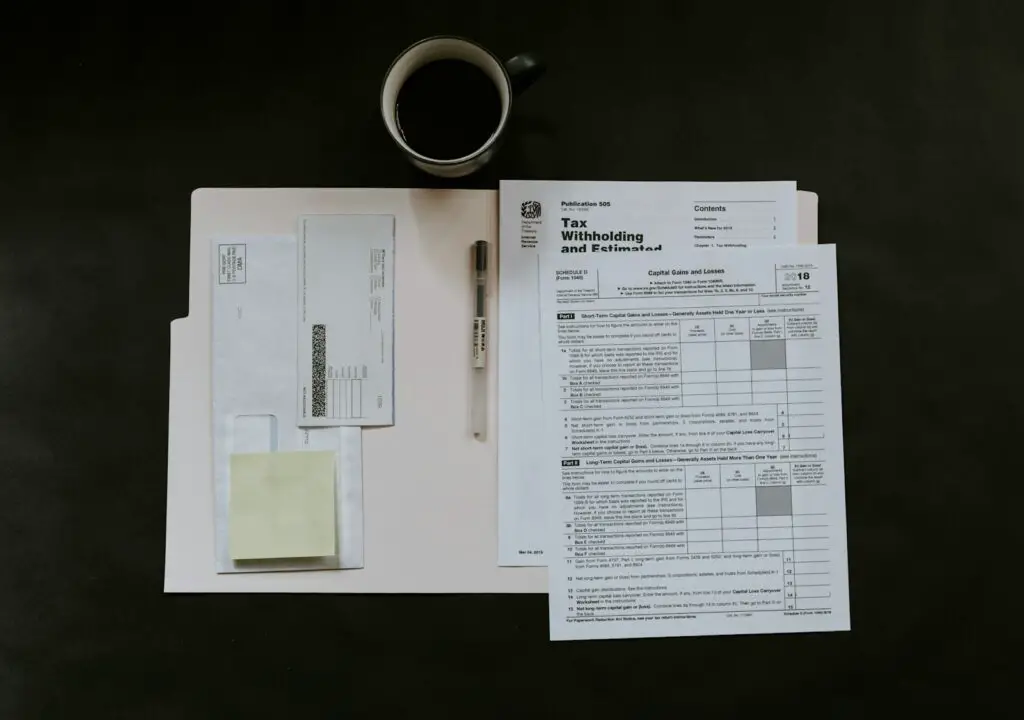In the turbulent sea of the modern job market, the gig economy emerges as an island of opportunity for many. The rise of the gig economy has redefined the landscape of work, with freelance and short-term contracts replacing traditional employment for a growing segment of the workforce. Retirement planning for gig workers is a maze of complexities, with traditional employer-sponsored pension plans being a rarity.
The gig lifestyle carries the burden of uncertainty, especially when it comes to health insurance. Gig workers must navigate a labyrinthine market to safeguard their well-being. Financial stability for those relying on irregular income streams requires a unique approach to budgeting and financial planning.
In this guide, we’ll explore the intricacies of long-term financial health for gig workers, from untangling the often perplexing world of retirement savings to securing health insurance and mastering the art of budgeting. With tailored tax advice included, this article is the financial road map designed to guide gig workers towards a secure economic future.
The Rise of the Gig Economy
The rise of the gig economy marks a significant shift in the labor market, characterized by a growing number of gig workers who favor flexibility over the traditional 9-to-5 grind. Digital platforms serve as the modern-day marketplace, connecting freelancers with short-term projects. This emergent sector caters not just to ride-share drivers but also to graphic designers, writers, and other skilled professionals.
With the allure of being one’s own boss, gig workers enjoy the freedom to choose when, where, and how much they work. However, this work structure comes with its own set of challenges: income variability, the absence of employer-sponsored benefits, and the unpredictability of project availability. Despite uncertainties, the gig economy thrives, indicating a shift in preferences where flexibility and autonomy are increasingly valued by the workforce.
| Key Aspects of the Gig Economy |
|---|
| Increased flexibility |
| Various skill-set opportunities |
| No employer-sponsored benefits |
| Income unpredictability |
Even with the challenges, gig work offers room for innovation, adaptability, and a tailored approach to achieving financial goals. As this sector expands, it becomes vital for workers to navigate through the uncertain nature of income and benefits towards a future of financial stability.

Retirement Planning for Gig Workers
Moving away from full-time employment towards the independence of the gig economy can be liberating, but it also puts the onus of retirement planning squarely on the shoulders of independent workers. Without the cushion of employer-sponsored retirement plans, gig workers must be proactive and savvy about charting their own course to a comfortable retirement.
Challenges in Retirement Planning for Gig Workers
The irregular income of gig workers poses a unique set of challenges for retirement planning. This variability makes consistent savings more difficult, compared to the predictability of a fixed salary. Furthermore, contingent workers may not always fully grasp the intricacies of tax payments, which are not automatically deducted from their earnings as they are for traditional employees.
Key challenges include:
- Income variability hinders consistent savings.
- Lack of access to an employer-sponsored retirement plan.
- Requirement for a greater understanding of tax obligations.
- Necessity for adept budgeting to accommodate irregular income streams.
- Greater exposure to risks without company-provided liability insurance.
Gig workers need to implement strict budgeting processes and develop a disciplined approach to managing irregular income, ensuring they can still set aside funds for retirement.
Options for Retirement Savings for Gig Workers
Fortunately, there is a range of retirement saving options available to gig workers for achieving their financial goals and ensuring long-term financial security.
Here are several avenues to consider:
- Traditional or Roth IRA: Contribute up to the IRS’s annual contribution limits for tax-advantaged growth.
- SEP IRA: For self-employed individuals, this account allows larger contributions than a traditional IRA.
- Solo 401(k): Mimics an employer-sponsored 401(k), but is designed for independent workers, with higher contribution limits.
- Health Savings Account (HSA): Paired with a high-deductible health plan, HSAs offer tax benefits and can act as a supplementary retirement account.
| Retirement Savings Option | Key Feature |
|---|---|
| Traditional or Roth IRA | Accessible, with tax-advantaged growth |
| SEP IRA | Higher limits, tailored for self-employed |
| Solo 401(k) | High contribution limits for individuals |
| HSA | Tax benefits, dual-purpose savings |
Diversifying retirement savings and understanding the unique attributes of each can help gig workers build a solid foundation for a secure retirement, even in the absence of traditional employee benefits.
Committing to a retirement plan tailored to the nature of gig work and staying disciplined in its execution is pivotal in safeguarding your financial future as progress continues within the ever-evolving gig economy.
Health Insurance for Gig Workers
Navigating the health insurance landscape as a gig worker can be daunting, yet it’s a crucial step towards securing your long-term financial health. Without the benefit of employer-sponsored plans, independent workers must independently seek out coverage to protect against unforeseen medical expenses that could otherwise derail financial goals. It’s imperative to know your options, understand the costs, and find a plan that balances affordability with adequate coverage.
Understanding health insurance options for gig workers
For gig workers, there are several pathways to obtaining health insurance:
- Marketplace Plans: Browse state or federal marketplaces established under the Affordable Care Act (ACA). Plans vary in coverage and cost, with potential subsidies based on income.
- Professional Associations: Some industry associations offer group health plans to freelance professionals like graphic designers or digital platform developers.
- Partner’s Plan: If applicable, you may join a domestic partner’s or spouse’s employer-sponsored plan.
- Medicaid: Low-income workers might qualify for this state and federal program.
- Short-term Health Insurance: An option for coverage between jobs, but usually offers less protection and does not cover pre-existing conditions.
Each option has its considerations regarding premiums, deductibles, and coverage scope, making it essential to evaluate your needs carefully before making a decision.
| Insurance Option | Consideration |
|---|---|
| Marketplace Plans | Subsidies availability |
| Professional Groups | Group rate benefits |
| Partner’s Plan | Dependent coverage terms |
| Medicaid | Income eligibility |
| Short-term Insurance | Coverage limitations |
Tips for securing affordable health insurance as a gig worker
To ensure you get the best possible deal on health insurance, follow these actionable tips:
- Assess Your Needs: Estimate how often you use healthcare services to choose between higher premiums with lower out-of-pocket costs or vice versa.
- Shop During Open Enrollment: This is the ideal time to compare plans and find the best match for your health and financial situation.
- Check for Subsidies: Determine if you qualify for subsidies on the ACA marketplace, which can significantly reduce your costs.
- Consider a Health Share Plan: Though not traditional insurance, these plans involve a community sharing healthcare expenses and can be more affordable.
- Stay Healthy: Prevention is cheaper than treatment. Maintain good health through regular exercise, a balanced diet, and routine check-ups to keep medical costs down.
- Use a Health Savings Account: HSAs can save you money by allowing for tax-free contributions to cover medical expenses.
In pursuit of long-term financial health, gig workers must take a proactive stance in securing health insurance. Achieving this form of financial security can provide peace of mind and contribute to the stability necessary for success in the gig economy.

Building Long-Term Financial Health for Gig Workers
In the fluctuating world of gig work, mastering the art of budgeting is the bedrock of financial security. Gig workers, from graphic designers to delivery drivers, must create a financial framework that accommodates income variability and safeguards against the unpredictable nature of project-based earnings.
The Importance of Budgeting for Gig Workers
A comprehensive budget serves as a financial compass for gig workers, guiding them through periods of feast and famine. It optimizes the allocation of every earned dollar, ensuring that essential expenses, tax payments, and debt payments are covered, while also allocating funds for savings and extra money for personal enjoyment.
- Enforce Discipline: Regular budgeting helps gig workers resist impulsive spending, making every dollar work toward predefined financial goals.
- Manage Irregular Income: By tracking income patterns, you can identify lean periods and save accordingly during more lucrative times.
- Prepare for Taxes: Unlike traditional employees, gig workers are responsible for setting aside money for tax payments, a crucial element often addressed in the budgeting process.
| Budgeting Category | Purpose |
|---|---|
| Fixed Expenses | Rent, utilities, insurance |
| Variable Costs | Food, leisure, unpredictable costs |
| Savings | Emergency fund, investments |
| Taxes | Quarterly estimated tax payments |
Creating a monthly budget and adhering to it helps gig workers stay financially focused and can alleviate the stress associated with an irregular income.
Strategies for Ensuring Financial Security as a Gig Worker
To navigate the uncertain terrain of the gig economy and achieve long-term financial health, gig workers should implement a variety of strategies:
- Diversify Income Streams: Don’t rely on a single source of income. Look for multiple gigs or passive income opportunities to reduce risk.
- Emergency Fund: Build a financial cushion that can cover at least 3-6 months of living expenses for added protection against income droughts.
- Retirement Planning: Without an employer-sponsored retirement plan, gig workers must be vigilant about their retirement savings. Take advantage of IRAs or solo 401(k)s, and be mindful of contribution limits.
- Invest in Insurance: Liability insurance protects against the potential legal expenses unique to your field. Independent workers should also seek long-term disability insurance.
- Professional Development: Invest in skills and networking to stay competitive in the labor market, leading to higher income potential.
- Automate Savings: Technology can ensure contributions to savings and retirement accounts without fail, aiding the pursuit of a comfortable retirement.
Recognizing the blend of freedom and challenge that gig work provides, gig workers can cultivate financial security with proactive budgeting and strategic planning, setting the stage for long-term fiscal well-being.

Tax Considerations for Gig Workers
As gig workers navigate the complexities of the gig economy, it’s vital they stay informed about their tax obligations to ensure long-term financial health. Freelancers and independent workers face a set of tax responsibilities different from those of traditional employees.
Understanding Tax Obligations for Gig Workers
Every dime a gig worker earns is subject to taxation. The key distinction lies in the fact that taxes aren’t withheld from their paycheck as they would be for a traditional employee. Gig workers must take a proactive approach to save and pay taxes themselves.
- Self-Employment Tax: Gig workers must pay self-employment tax, which covers the Social Security and Medicare taxes that employers typically handle.
- Quarterly Estimated Taxes: Rather than paying taxes once a year, gig workers are often required to make estimated tax payments quarterly, forecasting their yearly income.
- Deductible Expenses: It’s crucial to understand which business expenses are deductible, as this can significantly decrease taxable income. Items such as home office costs, necessary equipment, and travel related to work may qualify.
Keeping meticulous records is crucial. Retaining receipts and noting the purposes of expenses can simplify the tax process and assure one stays compliant.
| Tax Element | Description |
|---|---|
| Income Reporting | All income, no matter how small, must be reported. |
| Self-Employment Tax | A combination of Social Security and Medicare taxes. |
| Deductions | Business expenses that can be subtracted from taxable income. |
| Record Keeping | Detailed documentation of income and expenses for tax filing. |
Tips for Managing Tax Payments as a Gig Worker
Staying on top of taxes is paramount for the gig worker’s long-term financial health. Here are practical tips to maintain tax compliance:
- Track all Income: Keep a detailed log of all the payments you receive, no matter how minor they seem.
- Educate Yourself: Be aware of the tax deductions you’re eligible for and factor them into your financial planning.
- Utilize Accounting Software: Many modern digital platforms offer tools designed for gig workers to track their earnings, expenses, and estimate their taxes.
- Set Aside a Tax Percentage: Allocate a percentage of every payment into a separate account reserved for tax payments.
- Pay Taxes on Time: Mark your calendar with quarterly tax deadlines to avoid late penalties.
By implementing these strategies, gig workers can avoid the pitfalls of unexpected tax liabilities and ensure fiscal stability. They must continually educate themselves on changes in tax laws to avoid oversights that could jeopardize their income flow and, ultimately, their financial objectives.
For gig workers, the path to long-term financial health involves a careful balancing act with taxes. By fully understanding their obligations and managing tax payments efficiently, they can avoid stress and penalties, ensuring they keep more of their hard-earned money working for them.
Conclusion
Achieving long-term financial health as a gig worker requires careful management of various aspects, with taxes being a significant consideration. By understanding the tax requirements and implementing effective strategies for tracking, allocating, and paying taxes, gig workers can protect their income, avoid penalties, and establish a solid foundation for their financial wellbeing.
In addition to tax management, it is essential for gig workers to focus on other financial aspects such as budgeting, saving for retirement, and obtaining adequate insurance coverage. By taking a holistic approach to their finances, gig workers can set themselves up for long-term success and stability.
Remember, it’s crucial to stay informed about changes in tax laws and seek professional advice when needed. With careful planning, discipline, and a proactive mindset, gig workers can achieve and maintain long-term financial health.















Leave a Reply